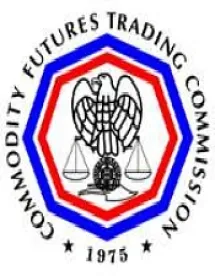On February 12, 2014, the Division of Market Oversight (DMO) of the United States Commodity Futures Trading Commission (CFTC) issued a no-action letter[1] clarifying that it would not recommend enforcement action against: (1) a multilateral trading facility (MTF) overseen by its European Union Member State competent authority (Competent Authority) for failure to register with the CFTC as a swap execution facility (SEF); or (2) any swap market counterparty, including “US persons” and “guaranteed affiliates”,[2] for failure to comply with an applicable trade execution mandate, until the earlier of the date when DMO issues a letter acknowledging and granting an MTF’s request to be treated as a Qualifying MTF (as described below) or 11:59 p.m. on March 24, 2014.
Simultaneously, DMO and the CFTC’s Division of Swap Dealer and Intermediary Oversight (DSIO) (together, the Divisions) issued a joint no-action letter[3] that:
-
permits an MTF that meets certain stated compliance requirements (each, a Qualifying MTF) to provide US persons or persons located in the United States the ability to trade or execute swaps on or through the MTF without requiring such MTF to register as a SEF pursuant to Section 5h(a)(1) of the United States Commodity Exchange Act (CEA) and CFTC Rule 37.3(a)(1);
-
provides relief to any swap market participant that executes swaps on a Qualifying MTF from any applicable trade execution mandate pursuant to Section 2(h)(8) of the CEA or any otherwise applicable obligations to report such swaps pursuant to Parts 43 and 45 of the CFTC Rules; and
-
provides relief for swap dealers and major swap participants (together, Swap Entities) executing swaps on Qualifying MTFs from certain conduct of business requirements under Part 23 of the CFTC Rules.
To become a Qualifying MTF, an MTF must submit a request for relief to DMO by March 24, 2014 addressing the criteria set out in the Qualifying MTF Letter, which are described in more detail below. The Divisions recommend, however, that an applicant submit its request no later than March 10, 2014 “in order to secure seamless relief” from SEF registration and trade execution requirements. Any MTF that does not avail itself of the relief provided by the Qualifying MTF Letter must either operate its business so as to avoid creating a jurisdictional nexus to the United States for application of the CEA and CFTC Rules or register as a SEF.
BECOMING A QUALIFYING MTF
To become a Qualifying MTF, an applicant must demonstrate compliance with the conditions set out in the Qualifying MTF Letter. These conditions reflect the terms of the political agreement struck in July 2013 between the CFTC and the European Commission, known as the “Path Forward”.[4] In particular, the Qualifying MTF Letter refers to the undertaking by the CFTC in the Path Forward agreement to provide regulatory relief to European trading platforms “that are subject to requirements that achieve regulatory outcomes that are comparable to those achieved by the requirements for SEFs”.
The conditions to the relief in the Qualifying MTF Letter cover the following topics. The Divisions require the relevant Competent Authority to have established regulations addressing the applicable requirements. An applicant that is not subject to sufficient local regulation may not meet the standards set out in the Qualifying MTF Letter through voluntary compliance with its terms.
Trading Methodology
An applicant must demonstrate that it maintains an order book[5] that is subject to, and compliant with, local regulations established by its Competent Authority and that is available as an execution method for each swap the applicant lists for trading. In addition, the applicant must certify that for any swap that is subject to a trade execution mandate (other than a block trade), such swap complies with local regulations that are in accordance with the CFTC’s requirements that such trades be executed either in an order book or through a request for quote system that operates in conjunction with an order book.
Block Trades
An applicant must certify that it maintains appropriate minimum block trade sizes and meets the other requirements in respect of block trades set out in CFTC Rule 43.6.[6]
Non-Discriminatory Access
An applicant must certify that it is subject to, and in compliance with, local regulations that ensure non-discriminatory access that are comparable to, and as comprehensive as, the requirements of CFTC Rule 23.202. An applicant must therefore certify that it has access criteria that are impartial, transparent and applied in a fair and non-discriminatory manner, that it has comparable fee structures for participants with comparable access, that its participants consent to its jurisdiction and that it has the power to limit access by its participants. Applicants are permitted to follow an “outcomes-based” approach in demonstrating compliance with this requirement.
Oversight Requirements
An applicant must certify that it is subject to, and in compliance with, certain “oversight” requirements relating to the applicant’s internal systems and controls. In particular, an applicant must be able to demonstrate that its local regulations are comparable to, and as comprehensive as, the CFTC’s requirements relating to rule enforcement and disciplinary procedures, audit trails, trade monitoring, trade reconstruction, system safeguards, and emergency authority.[7] Applicants are permitted to follow an “outcomes-based” approach in demonstrating compliance with this requirement.
Reporting Requirements
An applicant must certify that it reports all swap transactions to a CFTC-registered (or provisionally registered) swap data repository in accordance with the CFTC’s real-time and swap data reporting requirements set out in Part 43 and Part 45 of the CFTC Rules, respectively. An applicant must also demonstrate that it has adopted rules prohibiting its participants from submitting real-time and swap data reports.
Clearing Requirements
An applicant must certify that all swaps executed on or through the MTF that are subject to a CFTC mandatory clearing requirement, and that are entered into by counterparties subject to the mandatory clearing provisions of the CEA, are submitted for clearing to a CFTC-registered derivatives clearing organization (DCO), a DCO that is exempt from registration, or a central counterparty that has obtained no-action relief from the CFTC’s Division of Clearing and Risk in connection with clearing swaps for US persons. The applicant is also required to “coordinate with” each such clearinghouse and to adopt rules and procedures to “facilitate prompt and efficient transaction processing” within the meaning of CFTC Rule 39.12(b)(7).
ECP Requirements
An applicant must certify that it will only permit US persons that are “eligible contract participants,” as defined in CFTC Rule 1.3(m), to trade or execute on its trading platform.
In preparing an application, an MTF is required to identify the list of the relevant local regulations established by its Competent Authority that are applicable to the requirements set out above, and are expected to include supporting explanations of how such local regulations meet the foregoing requirements. The CFTC has provided an appendix to the Qualifying MTF Letter to facilitate the preparation of the application materials.
SWAP ENTITIES
The Qualifying MTF Letter provides Swap Entities relief from certain counterparty documentation requirements and certain external conduct of business requirements in connection with transacting in swaps on or pursuant to the rules of a Qualifying MTF. As regards to the former, a Swap Entity transacting anonymously on or pursuant to the rules of a Qualifying MTF will be deemed to have complied with its obligation to issue a confirmation to its counterparty. Such swaps will also qualify for the exemption from the requirement that a Swap Entity execute swap trading relationship documentation with each counterparty prior to, or contemporaneously with, entry into a swap with such counterparty. This relief is aligned with similar relief extended to Swap Entities in connection with transactions on registered SEFs where the Swap Entity does not know the identity of its counterparty prior to execution of the swap.
The Qualifying MTF Letter also extends certain no-action relief issued by DSIO relating to “intended-to-be-cleared” swaps (ITBC Swaps).[8] Swap Entities are granted relief from certain disclosure and notice requirements as well as certain documentation requirement in connection with ITBC Swaps entered into on or pursuant to the rules of a Qualifying MTF. The scope of relief available depends on whether the swap in question was accepted for clearing by a registered DCO as of November 15, 2013, or which as of the date of execution is subject to a mandatory clearing determination.[9]
CONTINUING CHALLENGES
The relief provided by the Qualifying MTF Letter has been characterised in the press as reflecting the CFTC’s commitment to resolving cross-border tensions with the European Union and to promote cross-border swaps trading activities. However, without discounting the value of the relief provided, several questions and challenges remain for those MTFs that wish to become Qualifying MTFs.
Time Frame for Compliance
Given the short time frame to demonstrate compliance with the requirements to be a Qualifying MTF, potential applicants will be required to take immediate steps to prepare their materials for submission on or prior to March 24, 2014. Particular challenges may arise for MTFs that have not historically been required to establish certain of the internal procedures or third-party arrangements set out in the Qualifying MTF Letter. For example, in the United Kingdom, the Financial Conduct Authority (FCA) only requires that MTF operators “have in place the arrangements necessary to facilitate” settlement; many MTFs, therefore, may not already have in place the clearing relationships with a DCO or other qualifying central counterparty necessary to meet the relief in the Qualifying MTF Letter.[10]
Similarly, many MTF operators leave it to their participants to discharge such participants’ trade-related reporting requirements, and therefore any such MTF that wishes to become a Qualifying MTF will need to rapidly establish a reporting infrastructure sufficient to meet the CFTC’s Part 43 and Part 45 reporting requirements. Further challenges may arise in demonstrating compliance with certain of the oversight requirements required under the Qualifying MTF Letter, as many MTF operators have not, for example, historically established extensive internal disciplinary and enforcement mechanisms that would be sufficient to be deemed comparable to those required of registered SEFs. Therefore, MTFs that might otherwise have opted to become Qualifying MTFs may forego doing so due to the extent of the adjustments and refinements to their existing business and the short time in which to effect such changes.
Liquidity Fragmentation
Much has been said about the fragmentation of transatlantic swaps market liquidity as a consequence of regulatory reform efforts in the United States and in the European Union. The Qualifying MTF Letter addresses one part of this issue, by expanding the scope for US persons and persons located in the United States to transact in swaps with or through a Qualifying MTF. However, even if Qualifying MTFs can claim relief under the Qualifying MTF Letter, European pools of swaps liquidity will remain separate from US pools of liquidity on registered SEFs for identical products. Neither the Qualifying MTF Letter nor the recent joint statement by the CFTC and the European Commission[11] indicate whether, or how, they propose: (1) to permit registered SEFs to access European Union swaps market participants without becoming subject to MTF authorisation requirements; or (2) to promote the alignment and unification of these two pools of swaps liquidity in an organised and coherent fashion.
1. CFTC Letter 14-15, Time-Limited No-Action Relief with respect to Swaps Trading on Certain Multilateral Trading Facilities Overseen by Competent Authorities Designated by European Union Member States (February 12, 2014) (Transition Period Letter).
2. As used herein, the term “US person” has the meaning ascribed to it in the CFTC’s final cross-border guidance. See Interpretive Guidance and Policy Statement Regarding Compliance With Certain Swap Regulations, 78 Fed. Reg. 45292 (July 26, 2013). The scope of the CFTC’s relief in the Transition Period Letter applies generally to “parties executing swap transactions”, which would also appear to include “guaranteed affiliates” and “conduit affiliates” as defined in the CFTC’s final cross-border guidance.
3. CFTC Letter 14-16, Conditional No-Action Relief with respect to Swaps Trading on Certain Multilateral Trading Facilities Overseen by Competent Authorities Designated by European Union Member States (February 12, 2014) (Qualifying MTF Letter).
4. Cross-Border Regulation of Swaps/Derivatives Discussions between the Commodity Futures Trading Commission and the European Union – A Path Forward, July 11, 2013, available at:www.cftc.gov/PressRoom/PressReleases/pr6640-13.
5. An “order book” for these purposes means either an “electronic trading facility” or a “trading facility”, each as defined in the CEA, or a trading system or platform in which all market participants in the trading system or platform have the ability to enter multiple bids and offers, observe or receive bids and offers entered by other market participants, and transact on such bids and offers. See CFTC Rule 37.3(a)(3).
6. CFTC Rule 43.6 generally grants the CFTC the right to establish minimum block trade sizes for swaps, in effect meaning that a Qualifying MTF must demonstrate that the block trade thresholds established by its Competent Authority are at least as rigorous as those established by the CFTC.
7. The specific CFTC Part 37 Rules are as follows: 37.200 (Compliance with rules); 37.201 (Operation of swap execution facility and compliance with rules); 37.203 (Audit trail program); 37.206 (Disciplinary procedures and sanctions); 37.400 (Monitoring of trading and trade processing); 37.401 (General requirements); 37.402 (Additional requirements for physical-delivery swaps); 37.403 (Additional requirements for cash-settled swaps); 37.404 (Ability to obtain information); 37.405 (Risk controls for trading); 37.406 (Trade reconstruction); 37.1400 (System safeguards); 37.1401 (Requirements); and 37.800 (Emergency authority).
8. CFTC Letter No. 13-70 (November 15, 2013).
9. In both cases, the Swap Entity is granted relief from the following CFTC Rules: 23.402(b)-(f) (Know your counterparty; true name and owner; reliance on representations; manner of disclosure; disclosure in a standard format); 23.430 (Verification of counterparty eligibility) 23.431(b) (Scenario analysis); 23.431(d)(1) (Notice of right to receive daily mark from DCO for cleared swaps); 23.432(a) (Notice of right to select DCO); 23.432(b) (Notice of right to clearing); 23.451 (Political contributions by certain swap dealers). In addition, Swap Entities do not need to comply with the following CFTC Rules in respect of ITBC Swaps that were either accepted for clearing by a registered DCO as of November 15, 2013, or which is subject to a mandatory clearing determination on the trade date: 23.434 (Institutional suitability); 23.440 (Requirements for swap dealers acting as advisors to Special Entities); 23.450 (Requirements for swap dealers and major swap participants acting as counterparties to Special Entities).
10. See MAR 5.4.1 R (2) of the FCA Handbook, available at:http://www.fshandbook.info/FS/html/FCA/MAR/5/4.
11. Statement by the CFTC and the European Commission on progress relating to the implementation of the 2013 Path Forward Statement, February 12, 2014, available at:http://www.cftc.gov/PressRoom/PressReleases/pr6857-14.







 />i
/>i

